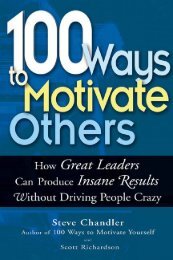Presentation-Secrets-Of-Steve-Jobs
Create successful ePaper yourself
Turn your PDF publications into a flip-book with our unique Google optimized e-Paper software.
REVEAL THE CONQUERING HERO 77<br />
introduction of the iPod on October 23, 2001, demonstrates this<br />
subtle but important difference.<br />
It helps to understand the state of the digital music industry<br />
at the time. People were carrying portable CD players that looked<br />
monstrous compared with today’s tiny iPods. The few existing<br />
digital music players were big and clunky or simply not that useful<br />
due to a small storage capacity that allowed only a few dozen<br />
songs. Some products, such as the Nomad Jukebox, were based on<br />
a 2.5-inch hard drive and, while portable, were heavy and were<br />
painfully slow to transfer songs from a PC. Battery life was so short<br />
that the devices were pretty much useless. Recognizing a problem<br />
in need of a solution, <strong>Jobs</strong> entered as the conquering hero.<br />
“Why music?” <strong>Jobs</strong> asked rhetorically.<br />
“We love music. And it’s always good to do something you<br />
love. More importantly, music is a part of everyone’s life. Music<br />
has been around forever. It will always be around. This is not<br />
a speculative market. And because it’s a part of everyone’s life,<br />
it’s a very large target market all around the world. But interestingly<br />
enough, in this whole new digital-music revolution, there<br />
is no market leader. No one has found a recipe for digital music.<br />
We found the recipe.”<br />
Once <strong>Jobs</strong> whetted the audience’s appetite by announcing<br />
that Apple had found the recipe, he had set the stage. His next<br />
step would be to introduce the antagonist. He did so by taking<br />
his audience on a tour of the current landscape of portable music<br />
players. <strong>Jobs</strong> explained that if you wanted to listen to music on<br />
the go, you could buy a CD player that held ten to fifteen songs,<br />
a flash player, an MP3 player, or a hard-drive device such as the<br />
Jukebox. “Let’s look at each one,” <strong>Jobs</strong> said.<br />
A CD player costs about $75 and holds about ten to fifteen<br />
songs on a CD. That’s about $5 a song. You can buy a flash<br />
player for $150. It holds about ten to fifteen songs, or about<br />
$10 a song. You can go buy an MP3 CD player that costs<br />
$150, and you can burn up to 150 songs, so you get down to<br />
a dollar a song. Or you can buy a hard-drive Jukebox player<br />
for $300. It holds about one thousand songs and costs thirty


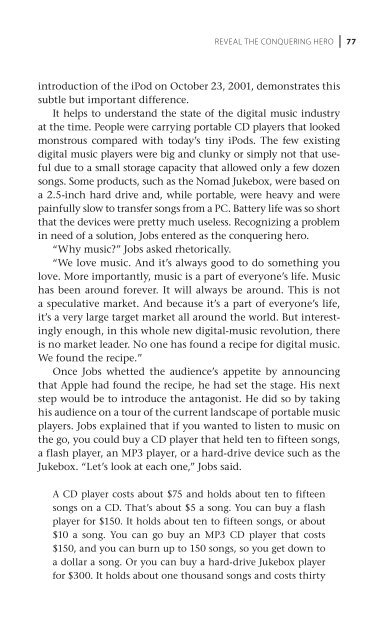

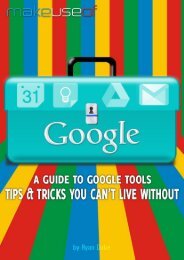

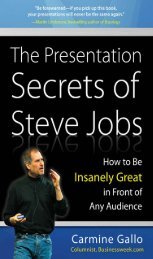




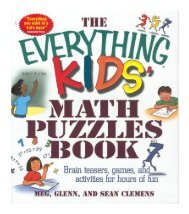


![[Lonely Planet] Sri Lanka](https://img.yumpu.com/59845622/1/169x260/lonely-planet-sri-lanka.jpg?quality=85)
